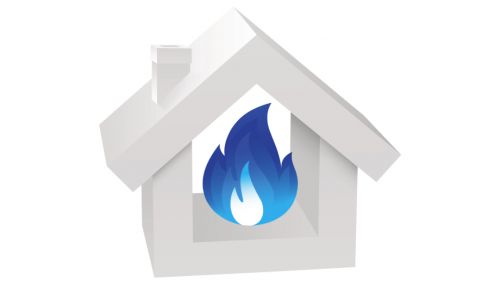All
Vermont Gas Cancels Part of Pipeline Project

Cost overruns cause paper mill to pull out; AARP applauds decision
Vermont Gas Systems’ three-phase pipeline expansion project suffered a major setback last month with news that Phase 2 has been cancelled. VGS announced it would not build the proposed pipeline connecting Middlebury, Vt., to the International Paper mill in Ticonderoga, N.Y., according to Vermont Fuel Dealers Association Executive Director Matt Cota.
The utility said International Paper was planning to shoulder the entire cost of Phase 2, but withdrew that pledge after Vermont Gas said the project would cost $135 million instead of the original estimated cost of $99 million. The pipeline would have passed under Lake Champlain, which borders Vermont and New York.
Similar cost overruns are also threatening the rest of VGS’s proposed expansion. One day before VGS announced the cancellation of Phase 2, the Vermont Supreme Court had authorized a reconsideration of Phase 1, after VGS had announced two rounds of cost overruns that increased Phase 1 price tag from $86 million to $154 million.
The Vermont Public Service Board had granted a permit for Phase 1 in 2013 but now has new authority to change the cost structure or even revoke the permit altogether. The Board has permitted VGS to pass on all the project costs to ratepayers.
Phase 1 is a 41-mile pipeline running from Colchester south to Middlebury near the state’s western border. Phase 3 would extend the pipeline south from Middlebury to Rutland.
Beginning of the End?
Cota said these developments could mark “the beginning of the end for this project.” International Paper was slated to pay not only the entire cost of Phase 2 but some of the costs of Phase 1. With the paper company out of the picture, ratepayers can expect to absorb another 10 percent cost increase.
Phase 3 of the project is a Middlebury-to-Rutland pipeline, which could bring Vermont Gas up to 15,000 new accounts, compared to no a maximum of 4,000 from Phase 1. “The Phase 2 decision puts the Rutland expansion in greater doubt, because it unclear if Vermont Gas can justify the cost of Phase 1,” Cota said. Twenty-four VFDA members companies serve the Rutland area.
The American Association of Retired Persons (AARP) has been monitoring the project closely and issued a statement praising the cancellation of Phase 2. “On behalf of our members and all existing ratepayers in Chittenden and Franklin counties, AARP is pleased to learn that VGS has made the decision to drop its plans for Phase 2 of the gas pipeline project, the association wrote. “The determination by VGS and International Paper (IP) that the project is not economically viable is a prudent one. However, it will have a direct impact on the cost of Phase 1 – a cost being paid for by current VGS customers.
“With Phase 1 costs already estimated to nearly double, this new development makes it even more difficult to prove that the greater good is being served by a project that will bring service to only 3,000 Addison County customers,” the statement continued. “According to VGS testimony, the rate increase for customers in Chittenden and Franklin counties will now go up at least 10 percent due to the elimination of Phase 2. This will represent the third substantial cost increase on a project that is just barely underway.
“AARP implores the Vermont Public Service Board to give very close scrutiny to the financial viability of Phase 1, and in particular to the burden it imposes on existing ratepayers. With the cost of this pipeline project rising steadily, however, it is imperative that the VT Department of Public Service step up to provide the needed data and analysis to inform the decision on Phase 1. It is our opinion that to date consumers have not been well represented by regulators and we feel strongly that Vermonters deserve better.”
Possible Outcomes
If the elimination of Phase 2 does not sink Phase 1 on its own, the pending reconsideration by the Public Service Board might, according to Cota.
When the state Supreme Court authorized the project reevaluation, it granted the regulators an unlimited timeframe and scope to hear the case, even though Vermont Gas has already placed more than six miles of pipeline in the ground.
The Board’s deliberations could lead to several possible outcomes, according to the VFDA executive. The three-member panel could:
- Approve the new costs and allow VGS to pass all of them on to ratepayers, as previously approved;
- Approve the new costs with a different cost allocation that assigns some share of the burden to Vermont Gas Systems and/or passes more of the costs onto large industrial users;
- Deny the permit altogether after finding that the project no longer serves the public interest;
- Change the project terms such that VGS on its own elects not to proceed with the project.
If the permit is re-approved and VGS proceeds with the pipeline, Cota is confident that the utility will face difficulties in recruiting customers. “Based on the cost analysis that has been done, Oilheat marketers have a pretty good chance of beating them at their own game, because the cost would be too much to get homeowners to convert,” he said.
Vermont Gas Systems is now selling gas at the equivalent of $2.11/gallon heating oil, and more cost increases are expected from the pipeline project, Cota noted. The cost of converting a heating system is discouraging enough, given today’s attractive heating oil prices, and there are other factors in play as well. “There is a lot of anger about this project,” he said. “Vermonters are a proud people, and they don’t like giving up their land for the benefit of a Quebec-based for-profit corporation.” VGS has resorted to eminent domain to seize land and has been accused of trespassing. “Don’t underestimate the will of a Vermont landowner who feels mistreated and sees their land trespassed on and their private property rights violated,” he added.
Phase 1 is expected to add only 2,000 to 4,000 new customers to the Vermont Gas Systems, and the pipeline cost is already at $3 million per mile. “The economics of it are becoming impossible. They just don’t have the customers to support this,” Cota said.
Related Posts
 The Possibilities of Renewable Propane
The Possibilities of Renewable Propane
Posted on March 13, 2024
 Propane Can Do That
Propane Can Do That
Posted on March 12, 2024
 Take Action and Take Control of Your Future at Industry Summit VI and Visions ‘24
Take Action and Take Control of Your Future at Industry Summit VI and Visions ‘24
Posted on March 11, 2024
Enter your email to receive important news and article updates.

